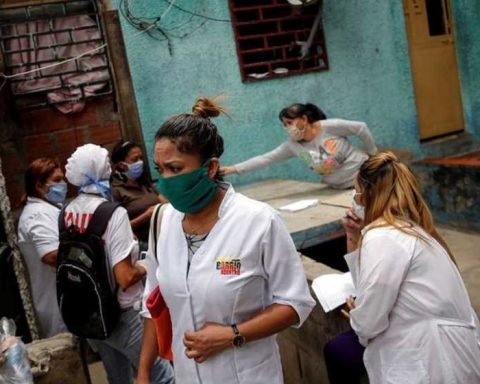The Portuguese man-of-war is a species that inhabits the great oceans, with the appearance of a jellyfish and that can cause very intense pain to humans with its stings.
He Ministry for Ecosocialism (Minec) reported on April 4 that the portuguese caravela colonial organism whose individuals specialize to keep the colony alive, has reached the coasts in Aragua, Falcón, La Guaira and Carabobo.
The species is usually confused with a jellyfish or bad water. It is characterized by being blue tones with a pink line in the floating part.
“Its presence is frequent on the Venezuelan coasts between January and May because the northwest trade winds blow more intensely towards the coast,” the statement said.
The government entity reiterated that in case of observing the species, it should be keep distance and avoid contact with the Portuguese man-of-war, even if it is dead.
#Release?️ || He #minec informs the community about the sighting of the Portuguese Frigate or (aguamala) on the coasts of the states of Aragua, Falcón, Carabobo and La Guaira.
Keep distance and avoid contact with it.#SemanaMayorInLove@NicolasMaduro pic.twitter.com/MVos5CJvRk
– MinecOficial (@MinecOficial) April 4, 2023
The Azul Ambientalistas Foundation indicated that in humans, the poison of the Portuguese man-of-war has consequences neurotoxic, cytotoxic and cardiotoxicproducing very intense pain.
In the event of a bite, the recommended thing to do is:
- Remove the remains of the tentacles from the skin, to eliminate the poison.
- Try to wash the area with alcohol or salt water. Do not use fresh water because it intensifies the effects. Do not rub with sand or towels.
- Minec recommends immersing the lesion for 30 minutes in white vinegar.
Gustavo Carrasquel Parra, director of Azul Ambientalistas, pointed out that the Portuguese caravel was seen in Playa Grande, in Choroní Aragua state, during April 1 and 2, 2023.
not a jellyfish
According to Azul Ambientalistas, although it looks like a jellyfish, the Portuguese man-of-war is actually a colonial organism whose individuals specialize to keep the colony alive.
La Vanguardia explained that the frigate is made up of a group of hydroids that divide the work:
the pneumatophone It’s the part that floats.
The gastrozoids They are responsible for the digestion of the colony.
The dactylozooids detect and capture prey.
The gonozoids They deal with reproduction.
Its tentacles can extend 50 meters below the surfacealthough the average is around 10 meters.
The organization highlighted that among its main predators are loggerhead and hawksbill turtlesas their skin is too thick for the venom from the bite to affect them.
the sea slugGlaucus atlanticus, and the purple snailJanthina janthina, also feed on the Portuguese frigatebird.
“It is dangerous to approach or have rubbing against its tentacles, whether it is alive or dead, so if you find it on the beach, avoid having contact with them,” the NGO said.
The Ministry of Ecosocialism recommended that if you come to see or present any contact with a specimen of a Portuguese frigate, inform the nearest authorities or notify the toll-free number 800-Ambient (0800-2624368). Also, you can make the report to the accounts on Instagram @miecosocialismo either @inparquesoficial.
Also read: Invasive coral grows rapidly in Valle Seco, Choroní, and risks the ecosystem
Post Views: 201













